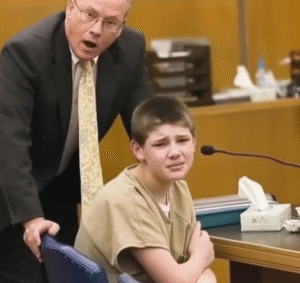Teen Handed Unprecedented 985-Year Prison Sentence — Emotional Courtroom Moment Sparks Debate

A courtroom in the U.S. became the center of national conversation after a teenager was handed a jaw-dropping sentence of 985 years behind bars—one of the longest ever imposed on a juvenile offender.
The dramatic sentencing followed a lengthy trial involving multiple charges of extreme violence, which left the community both horrified and divided. As the judge pronounced the sentence, those in the courtroom—including the accused—were visibly shaken. The teen, surrounded by legal counsel and officers, stood frozen in disbelief, the weight of the decision sinking in moment by moment.
A video of the sentencing has since gone viral, igniting heated online discussions about the fairness of sentencing juveniles to what is effectively life imprisonment. Supporters of the sentence argue that the severity of the crimes demands accountability, while others question whether youth offenders—no matter how serious their actions—should be denied any opportunity for rehabilitation.
The case continues to provoke intense emotions, challenging the justice system’s balance between punishment and the possibility of change, especially when dealing with those so young.
A Twist of Humor Amid Courtroom Tension
In a separate case that took an unexpected turn, a 15-year-old boy involved in a child custody dispute provided a rare moment of levity during otherwise serious proceedings in Cook County. The boy, reportedly subjected to abuse by multiple family members, stunned the courtroom when the judge allowed him to suggest an alternative guardian.
After rejecting custody options including his aunt, parents, and grandparents—all of whom he accused of mistreatment—the boy proposed a highly unusual solution: being placed under the care of the New York Knicks basketball team.
His reasoning? In his own words, “They can’t beat anybody.”

While the moment drew laughter, it also served as a sobering reminder of how deeply broken some family systems can be—and how children often resort to humor as a way to cope with trauma.